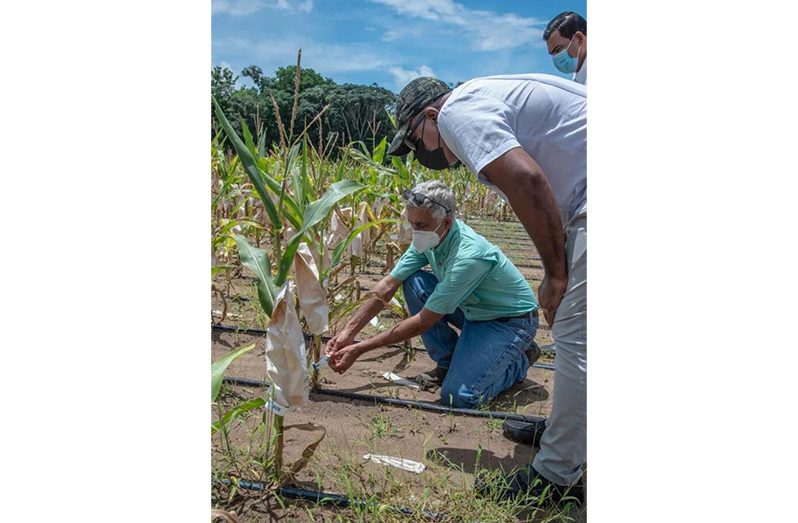– Agriculture Minister says
THE drying and storage facilities for corn and soya beans currently being constructed at Tacama Landing along the Berbice River are expected to be completed within two to three months.
Minister of Agriculture Zulfikar Mustapha disclosed this on Tuesday during an outreach at Ann’s Grove, East Coast Demerara.
The new facilities will provide employment opportunities and boost the nation’s food sector.
Minister Mustapha explained that the government spends almost $60 million to import the two products. However, they are now cultivating the commodities locally with the intention of exporting.
“We [government] have started the production of corn and soya in the intermediate savannah, we started to build facilities there and in another two-three months, we’ll have those facilities complete. “We want to produce more…that is why we are expanding…those foods we have been importing, we want to start producing them locally and that is why we ventured into new crops,” the agriculture minister said.
Meanwhile, another $150 million was set aside in this year’s budget for constructing a wharf in the area.
It will provide easy river access to the land under cultivation, making it more accessible for farmers to transport their produce.
“Just under three years we have seen budgetary allocation to the agriculture sector move from $13 billion to $32 billion. Why have we invested in it? Why have we doubled it? Because we see the need to improve the infrastructure in our country. We see the need to ensure that we prepare the agriculture area in a way that farmers can have it easier to produce,” the minister explained.
He confidently projected that Guyana would be self-sufficient in food production in the next two years.
Meanwhile, the trial of 125 acres of corn and soya bean was started by the government in 2021 and eventually reaped major success.
Private sector members are also key stakeholders in the monumental cultivation and production of corn and soya bean.
This is in line with the President’s initiative of helping to reduce the food-importation bill in Guyana and the Caribbean Community (CARICOM).



.jpg)








